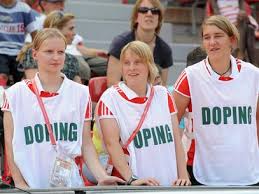By David Owen
June 19 – The World Anti-Doping Agency (WADA) has urged other sports bodies to take a leaf out of FIFA’s book, after world football’s governing body completed the first phase of a groundbreaking World Cup drug testing programme with no positive cases reported.
Welcoming the FIFA initiative, which saw 800 players have blood and urine samples collected and tested prior to the start of this year’s competition in Brazil, David Howman, WADA’s director general, said the move was “the first time in major sport competition history that participating athletes were systematically tested prior to the competition for the establishment of individual biological profiles including both blood and urine parameters”.
Howman went on: “We encourage other sports to follow suit in adopting the Athlete Biological Passport (ABP) as an effective means to protecting the rights of the clean athlete.”
The ABP is a method of monitoring athletes’ biological profiles over a period of time, in order to identify surprise changes that might be the result of doping.
WADA served notice at an International Olympic Committee (IOC) meeting in Argentina last year of the imminent launch of a so-called “steroid passport”, using data collected from urine samples rather than blood.
Michel D’Hooghe, chairman of FIFA’s medical committee, said the organisation was “happy and proud that, for the first time in our history, all players participating in the FIFA World Cup will be controlled by blood as well as urine examination”.
FIFA said that remaining players “can and will be tested” at any time during the competition.
Moreover, two players from each team would be tested for blood and urine at each match as part of routine in-competition doping controls.
The organisation explained that results from the different analyses, as well as those from prior club and international competitions, would be compared “in order to detect potential deviations that may indicate an abuse of performance-enhancing drugs”.
Samples collected from World Cup players are having to be analysed at a laboratory in the Olympic capital of Lausanne because of last year’s revocation by WADA of the accreditation of the so-called Ladetec laboratory in Rio de Janeiro.
D’Hooghe said FIFA would run up $250,000 (£148,000/€181,000) in extra costs as a result.
Contact the writer of this story at moc.l1745072435labto1745072435ofdlr1745072435owedi1745072435sni@n1745072435ewo.d1745072435ivad1745072435

